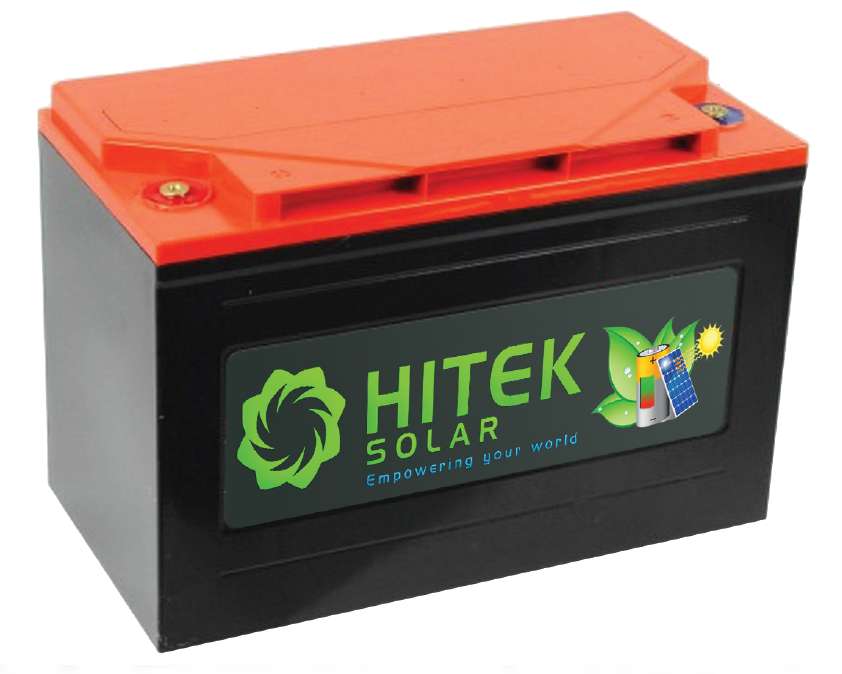Why is there such a mixed experience with solar power / batteries? April 18 2020
How can 1 person have such a great experience and another person have a bad experience with batteries, solar panels and solar power systems ?
It's recently come to my attention that there are many grey market parallel importers out there who simply just import and sell items for no other reasons other than to simply make profits. Sadly it's the intention of these people usually to just be interested in making the profits (as their primary motivation) but not being able to give correct real world advanced technical advice or technical support to their clients.
This then has lead to many people wondering WHY items they purchase elsewhere gave them a poor experience and why items they purchased from us gave them a great experience? In their minds they thought they were buying what looked to be the same (or very similar) items.
We've heard this with batteries, inverters, solar panels and entire solar systems in fact. In some cases we've seen some people only get 2 years of life from their batteries that they expected to get 10 years life from, and in other cases their entire system yearly power production was down to 40% of what it should have been (they had lost 60% of their output) and other similar occurrences.
With many items we supply at Hitek we've done thousands of hours of R&D (research and development and technical testing over many of our key items combined) to ensure our products and systems actually deliver great results for real world NZ conditions. Often many of our items we get produced for us will have changes or internal variations or adjustments made specifically at our request so that they deliver a better real world experience for our customers here in real NZ system conditions, yet when people try to source their own version of an item it will often be a different spec internally from what we are supplying and in turn it won't perform as well in real world applications.
Not only this but often our method of configuration and / or implementation of the items or systems will be different due to our 12 years of vast technical knowledge and hands on real world experience with this technology as a specialist in this area. This means that even just a voltage adjustment of say 0.4v difference (less than 1 volt) or even a temperature adjustment of just 5 degrees C can have a HUGE real world affect on whether you have an average result from your system or whether you have a great experience.
If you think about it Solar Power Systems (making them work really well) have alot in common with baking a cake. You could give 12 different people all the same ingredients and just depending on the way they put them together, the order they put them together, what settings are used for the mixer and oven etc and you end up with vastly different results. The ones implemented poorly will FLOP and the ones implemented well will be amazing (yet in these cases the same $$ was spent on the ingredients), and this is the reality of the world we live in today. One could even then say well the guy who had the flop now has to end up buying the ingredients again and wasting their time + energy to have a go a second time just to try and get the same good result that the other guy got the first time. This is why often thinking you are saving a few bucks and up as a FALSE ECONOMY, as it ends up costing you more than to do it right from the start. How many of you have ever watched Jamie Oliver on TV and thought that looks amazing what he's made, and you use the same ingredients and yet what you end up making turns out looking and tasting nothing like what you had seen him make? If however you practiced and made the same thing 50 times over likely by the 50th attempt what you've made will be much better than the 1st attempt. The exact same is true for solar power systems and battery systems today except instead of $15-30 of cake mixture involved there's often $5000 - $90,000 dollars involved, so not something you want to be getting wrong and repeating.
With items we supply we are happy giving this correct technical advice / support away for free but only for items and systems we've supplied and we only give that advice / support away to the direct person or company we sold to, however with items supplied by other companies you cannot phone us up for free technical advice / support for items we have not directly sold or supplied you. In turn we charge for technical support for anybody wanting technical advice / support for items or systems we did not directly supply and we may simply deny technical support for items purchased elsewhere also.
The real key point here though is that often a person may think that they're saving $40 or $60 buying what they thought was the same or similar item from a trading company, only to find that because of lack of advanced technical support / technical advice they end up with a poor experience that then means they're still unhappy with the result even after their purchase, yet if they had purchased through Hitek they wouldn't be in that same position and they would be assured of having a good experience and correct technical advice / support available.
Often when people are spending $2000 through to $90,000 then you really must think long and hard about what VALUE that advanced real world technical advice and technical support is actually worth to you if it means the difference between having a good long term experience from your hardware and your systems or having a poor experience from your hardware / systems and potentially replacing expensive items much sooner than expected. Eg if you spent $4k on batteries and then you only got 2 years of life from the batteries as a result of running them in the wrong environment or with wrong settings then even if you thought you had saved $300 at time of purchase, you actually just cost yourself an extra $3700 after 2 years as a result of the consequences of that decision.
Buying and running solar items and solar systems is NOT like buying a new fridge from your local white-ware store. With a fridge you basically just plug it in and away you go, you'll get the same experience no matter who plugs it in, but with batteries, inverters, solar panels, solar systems the same is NOT true at all, in fact it's very far away in real world reality.
With solar panels themselves they are rated as their "Peak Power Wattage" that only tells you what the panels will do during the best day of the year during the best part of the day (eg 12pm) on a clear sky sunny day during the peak of summer, however it does NOT tell you anything at all about how the panels will perform for you during a cloudy or overcast day, or during Autumn, Winter, Spring etc. In turn our main focus with our solar panels has been real world NZ testing and NZ panel development right here in New Zealand to actually ensure our panels are tested back to back against other top brands of panels from around the world to ensure that our panels actually typically give HIGHER / BETTER real world power output in real NZ conditions than typical conventional panels. In many cases back to back testing (including independent client feedback) has found that often many of our panels are able to give between 50% extra power per panel and often even up to 30% greater power (per rated panel watt) in real world NZ conditions. This means we've had 1 of our 330w panels give up to 50% more power on a cloudy NZ day compared with a 1 year old 330w conventional panel supplied by another company. Why this is critical is that for many system owners (including off-grid systems and RV's etc) the cloudy days are when you are needing that extra power the most, and so if a panel is only efficient at producing power in the peak of summer but terrible at producing power on a cloudy or overcast day then even though it may have the same Peak wattage label rating as our 330w panels that does not tell you anything about how similar (or dis-similar) the real world NZ power output will actually be between their panels vs our panels and in fact many companies in NZ have not even done ANY of their own real world back to back testing to even directly compare their panels vs other panels in real NZ conditions, and I can assure you just testing the comparison in China does not tell what or how they will perform like here in NZ as our atmosphere conditions are very different here. It's well known that many panels designed for usage of solar power systems in China may run happily there for 10 years without issues and then as soon as those same panels are used here in NZ they may perform poorly or even fail after just 2-4 years, and people say why? They don't understand that the panels need to be built to a different and higher (NZ specific) spec as our conditions here are very different, and this is exactly why we don't just import random panels and items from China and why we do our own development and testing of our panels and many items we supply to ensure the really will give a long life and best results here in real world NZ applications, but I'm not aware of any other companies in NZ that do this to the extent that we do.
Long story short, when you are buying your solar system or battery related hardware or items then you want to be dealing with a company who really cares about ensuring that each and every client ends up with a great real world experience, rather than a company who doesn't offer (or often even have the ability to offer) to advanced technical support to ensure you can even end up with a great experience because their primary concern is just making sales and lining their pockets (this is the opposite of what Hitek is about).
Our company slogan is "Empowering your world" as it's our goal with ALL of our systems to actually help empower our customers, and part of this means being able to give them correct real world advice or technical support to ensure they can achieve a good experience, and this is our primary goal (not lining our pockets).
Because we are "Official" agents of the brands we use and supply then we get direct technical support and access to alot more advanced technical information than someone who is just grey market importing a brand and in turn is LOCKED OUT of the official manufacturer support channels.
I hope this article proves useful to really help people better understand why and how so many people can have bad or poor experiences just from buying hardware online from random sellers when in their mind they thought they were buying the same (or similar) items. As the old saying goes "It's all in the detail" and when you don't even know what you are looking for in the first place, you don't know what correct questions to ask and in turn the critical details are often missed until it's too late and by that time you find out you have a poor experience and nobody there to properly assist you to get things running right for your site.
This is why we hear that around 80% of NZ solar systems running here in NZ today are giving LESS than optimal results or have not met the clients expectations or are not giving the power output or savings that a client had expected at the time of purchasing, yet for our clients and our systems we have amazing results and amazing success stories from the last 7500+ systems we've designed and supplied.
We have a saying that is "You don't buy Solar Panels or Batteries to just sit there and look pretty", meaning that unless they are doing their job and doing it well then there's no point on having them as if all they are doing is just sitting there looking pretty and not giving you good real world results and not giving you good real world savings then there's really little point having invested in them in the first place if they're not working well for you.
Many people don't realize that we actually DO have a price match policy*, which means if you do see the exact same make + model items as we are offering and it's in stock in NZ (currently in stock available) not coming on a shipment a few weeks away, and it's a public listed / advertised or quoted price that you can reference, then we are able to often match (or beat) that price under our price match policy. What this means is that if you were thinking about buying elsewhere because you thought were were getting something slightly cheaper then PLEASE talk with us first and ask about this policy, as the very worst thing we can possibly come back to you saying is "sorry we can't help" but more often than not we may be able to come back to you saying "Congratulations" we can assist you with that. There's a great saying "If you want something, it's best to ask", so we encourage our clients to please talk with us and at least ask us to allow us to best assist you rather than just assuming we may not be able to help you.
If you have an existing solar system (or battery system) that was purchased elsewhere or supplied by someone else that is not performing well for you or you are having constant issues then please feel free to give us a call and we will see how we are able to best assist you to help.


